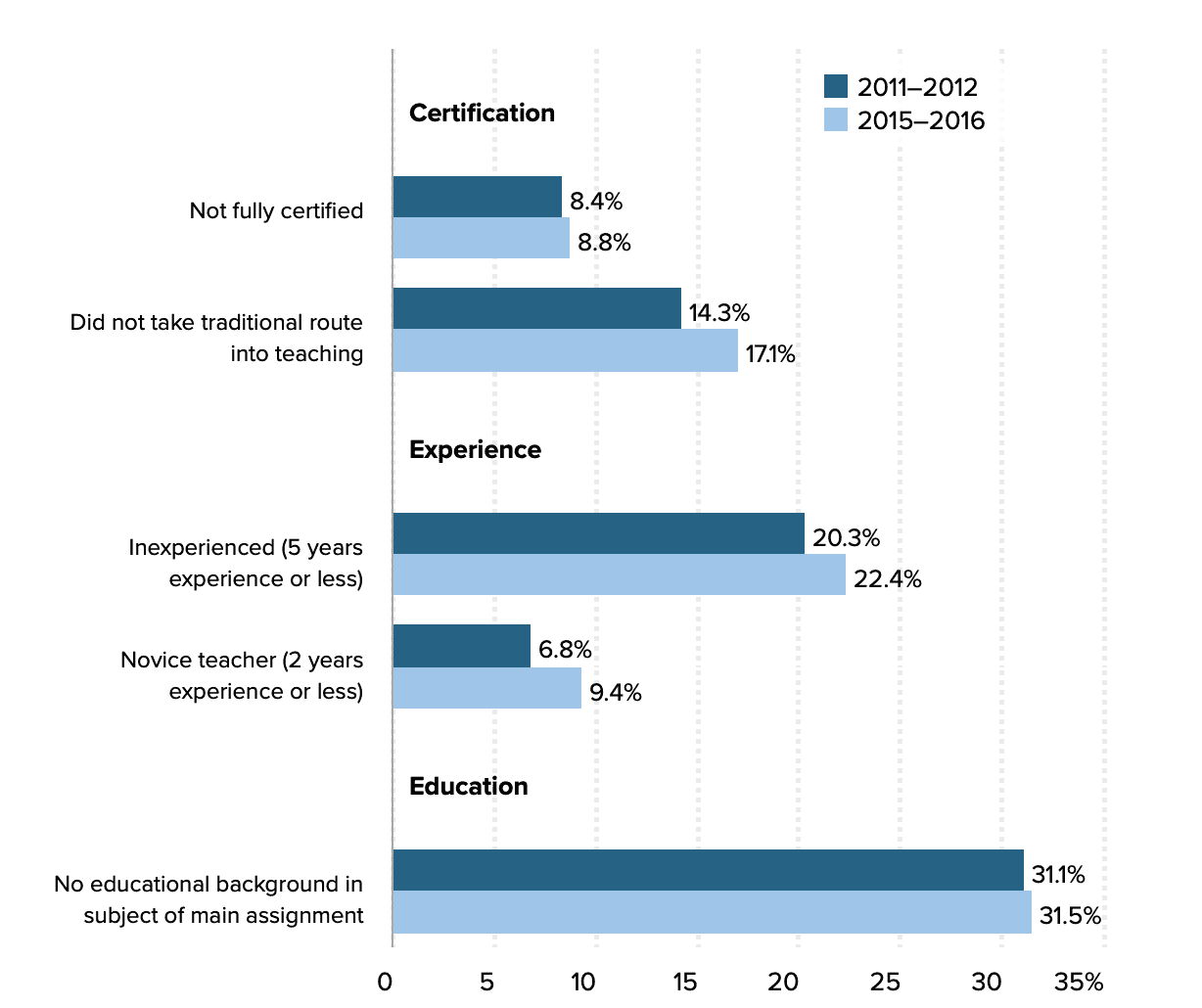
How To Conduct a Structured Interview
Learn how to conduct structured interviews effectively with our comprehensive guide.

The influence of teachers goes beyond the classroom into the real-world, shaping our reality and that of future generations.
If you’re recruiting for teaching roles, you’re likely looking for someone with certain qualifications and skill sets. With the exception of early education (which requires a broader knowledge base), you’ll want someone with subject matter expertise. But what else should you look for when recruiting teachers?
What does it take to be a good teacher? What does it take to be a great teacher? There are a few schools of thought on this, but most good educators share some similar traits.

Depending on the grade you’re hiring for and what state/province that position is located, teachers may require a teaching license. In order to apply for teaching certification, the candidate likely completed a bachelor’s degree in education (perhaps a master’s degree, depending on their specialization), then a number of qualifying teaching credit hours as part of their coursework. HR can verify this by requesting a copy of the certificate and a transcript. Digital uploads makes this easy.
Change over time in teacher credentials
Share of teachers without various credentials, by type of credential.

The last thing any school administrator should overlook is their students’ safety. Since many teachers work with young people who are vulnerable and impressionable, they must have a clean background record. For this reason, school districts often conduct a state or federal criminal background check on prospective teachers. These background checks are crucial to the hiring process because they reveal convictions for offenses—especially those involving children—helping protect students and your school’s reputation.

Those who teach should never stop learning. Teaching is a continuum, which echoes into adult education. There’s always new information and new ways of doing things, so educators should value continued education and strive for professional development. What they learn can be passed along to their students. A lifelong love of learning is also a sign of dedication to the profession and enthusiasm for their job.

One of the most fundamental skills of any teacher is how they explain and present information to those who are trying to learn. Are they confident and engaging in front of a classroom? Can they see when students are struggling and offer alternate approaches to learning? Are they able to break down complex topics into digestible pieces to increase the likelihood that people will understand? These are all qualities of a great teacher.

Teachers are in a unique position to shape minds—especially young minds, which are more malleable. Many societal issues like racism begin at an early age, and responsible teachers can help remedy this by introducing new points of view to children. School districts can come together to reinforce this inclusive message as students progress through the school system, helping dissolve serious systemic problems.
Patience and tolerance also involves acknowledging everyone learns differently and taking the time to explain what students don’t understand. Beyond that, teachers must be patient with parents, too. For example, how do they communicate with parents who are complaining about their child’s bad grades?

Regardless of age, educators must keep pace with technology. Why? Because their students are part of a digital generation, so they often learn best on what they already know best. To do this, teachers need to be flexible and willing to try new things such as adopt new educational apps. It’s up to the teachers to explore different digital teaching tools to determine which ones could enhance student learning and which ones are a distraction.

Teachers juggle many tasks every day, including lesson planning, class activities, and marking tests and assignments. They must be highly organized because their jobs necessitate multi-taking. This skill is especially important for teachers with multiple classes and subjects.

Some people are wonderful educators—but they’re better suited to teach a specific age group. For example, a job applicant who wasn’t a good fit as an elementary teacher might make an excellent grade high school teacher. So much depends on the individual and the specific setting.
Elementary/Primary School
If you’re recruiting for elementary school teachers, you’ll likely want someone who can teach a variety of subjects such as reading and writing, science and math. Can they develop engaging, age-appropriate lesson plans and adapt these for children who might struggle with them? Their role is to teach fundamental knowledge that students build on as they age. Can they explain broad, complex topics simply? Do they have hands-on teaching exercises to help young minds understand and learn by doing?
Junior High/Middle School
If you’re trying to hire teachers for middle school, take a good look at the candidate in front of you. Do you think students would look up to them? Middle school is when some people start disengaging in school, but hiring teachers who are personable and inspirational can help counter that if the teacher acts as a role model and enforces discipline when needed.
High School and Adult Education
High school teachers are ultimately preparing students for life after graduation— whether that’s attending college or university or entering the workforce. At this stage, it’s important to look for teachers who also act as counsellors, helping students determine what they’re like to do next. This skillset is similar to those working in continuing education; people are often looking to upgrade their education in hopes of getting promoted or changing careers.
Get a Free Demo!
They help employers focus on getting to know qualified candidates rather than spending time on administrative tasks. In other words, they reduce time-to-hire and ensure better hiring decisions. They also facilitate greater collaboration between team members at all hiring stages.
Lastly, storing candidate information centrally reduces the risk of data loss or security when using multiple hiring tools or manual processes.
While they have many advantages, the nature of automated resume screening (or “parsing”) means that some qualified candidates may not make it through to the shortlist. It usually comes down to resume formatting, for example, images or tables that are difficult for the system to understand. A lack of exact keyword matches to the employer’s pre-determined qualifications can also play a part. Hiring managers can minimize this risk by including a wide range of keywords synonyms for experience and qualifications.
Key features include workflow automation around candidate advancement and tracking. During the initial hiring phases, it can help alleviate the work involved in posting and advertising positions with one-click job board postings and custom careers.
These systems help employers build strong relationships with applicants through automated communications throughout the hiring process. They also streamline interview scheduling and save unsuccessful candidate profiles for later, which helps create a candidate experience.
Modernize your hiring process with expert insights and advice.